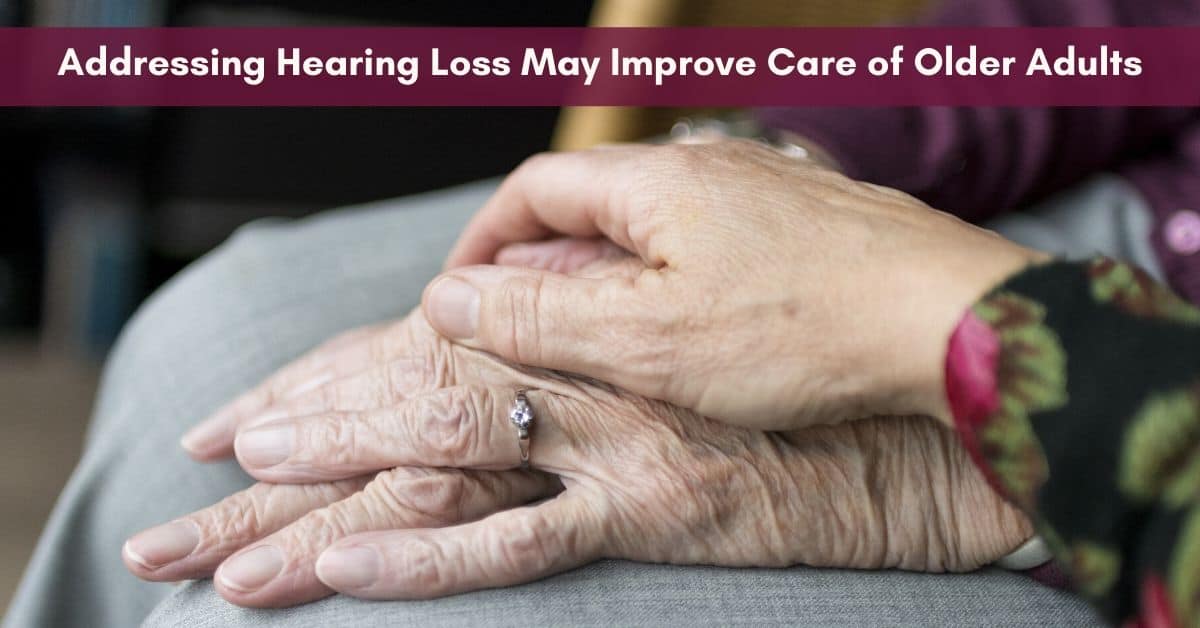- Volunteering for Hearing Health Causes - May 27, 2025
- Questions to Ask During Your Hearing Health Appointment - May 16, 2025
- Exploring Alternative Therapies for Hearing Loss - May 6, 2025
Hearing loss is a big problem among older adults. The National Institute on Aging estimates that some form of hearing loss is found in an estimated 3 out of 5 people over 65. This statistic increases the older one gets. Another World Health Organization study reports that there are 164.5 million people worldwide over the age of 65 with debilitating hearing loss.
Why does hearing loss increase with age?
Different factors, including medical conditions, genetic history, and occupational exposure to loud noise, may lead to hearing loss. People of any age may experience hearing impairment, and it is essential to note that there is no particular cause of hearing loss caused by age.
In other words, hearing loss is not an inevitable reality of aging; it often occurs when:
There are changes to the ear: The ear consists of different parts, including hair cells and nerves that absorb and translate soundwaves into electrical signals. The auditory nerve sends these impulses to the brain, which then makes sense of these sounds. This is what allows for the interpretation of what you hear as sound. Over time, changes can occur to the inner ear, such as a weakening in the function of the eardrum or the ossicles bones in the middle ear. These changes can affect the hair cells and nerves, resulting in diminished hearing.
There are side effects of existing medical conditions. Other health issues can contribute to hearing loss. Hearing can be influenced by medical conditions that become more common as we age, such as diabetes, cardiovascular disease, hypertension, and stroke.
Hearing professionals are not equipped to deal with hearing loss patients
Those with hearing loss often comment about the lack of empathy and understanding shown by medical professionals about hearing loss. They feel that those in the healthcare profession don’t have proper knowledge of how stressful it is to try and understand and follow a conversation involving medical care and options for a hearing-impaired patient.
Some studies show doctors make fewer visits to the rooms of patients with hearing impairments and spend less time in the room when visiting. Upon discharge from a medical facility, patients with hearing loss are often re-admitted for treatment because they may not have fully understood instructions on aftercare and pain control.
What health professionals can do to improve communication
If you’re a caregiver or health professional of someone with a significant hearing loss who needs medical treatment, there are several things that you can do to help that person out.
Remember, even if an individual with hearing impairment is using a hearing aid, there are things that you can do to improve their patient experience and help communicate. You don’t want to have to repeat yourself or run the risk of misinterpreting essential instructions or questions.
- Start with their name. Say the name of the patient as you begin speaking your sentence. It will center their attention, and the first couple of words will not be skipped.
- Talk at a regular speed. Don’t talk too fast, or use long sentences of compounds.
- Take your time. Pause between sentences, and watch the patient’s face to make sure they don’t look puzzled and follow along.
- Show your face. Try to keep your hands away from your face so that the patient can see your face, and refrain from drinking or eating.
- Facial hair may be an issue. If you have facial hair, beard, or mustache, this may interfere with lip-reading, and you may need to make sure that you speak clearly – not shouting and distorting a hearing aid wearer.
- Use their ‘good’ side. If the person with hearing loss hears best in one ear, make a point of remembering to put yourself closer to that side.
Seeking Treatment for Hearing Loss
Treatment is everything when it comes to hearing loss. Untreated loss of hearing brings many obstacles to interpersonal relationships, physical well-being, and quality of life overall. The first thing we do when treating hearing loss is to conduct a comprehensive hearing test. If a hearing loss is suspected, our team will work with the patient to determine the right treatment. Contact us today to set up an appointment for you or someone you know.

